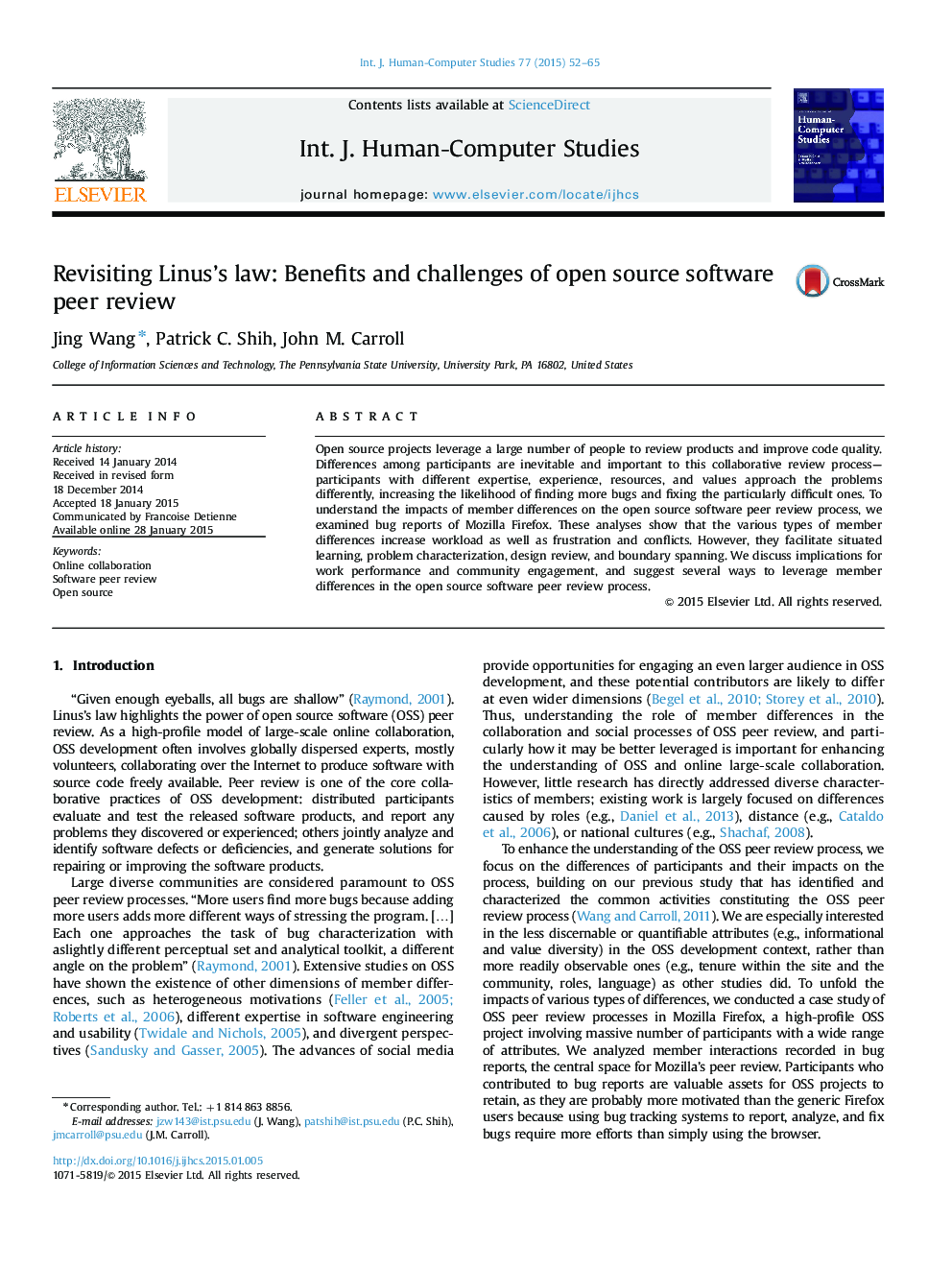| Article ID | Journal | Published Year | Pages | File Type |
|---|---|---|---|---|
| 400674 | International Journal of Human-Computer Studies | 2015 | 14 Pages |
•We characterize the impacts of member differences on open source software peer review.•We suggest nuanced view on Linus’s law in regard to work performance and community engagement.•We provide design implications for leveraging member differences in large-scale online peer production.•We conducted a case study in Mozilla with extensive analyses on bug reports.
Open source projects leverage a large number of people to review products and improve code quality. Differences among participants are inevitable and important to this collaborative review process—participants with different expertise, experience, resources, and values approach the problems differently, increasing the likelihood of finding more bugs and fixing the particularly difficult ones. To understand the impacts of member differences on the open source software peer review process, we examined bug reports of Mozilla Firefox. These analyses show that the various types of member differences increase workload as well as frustration and conflicts. However, they facilitate situated learning, problem characterization, design review, and boundary spanning. We discuss implications for work performance and community engagement, and suggest several ways to leverage member differences in the open source software peer review process.
